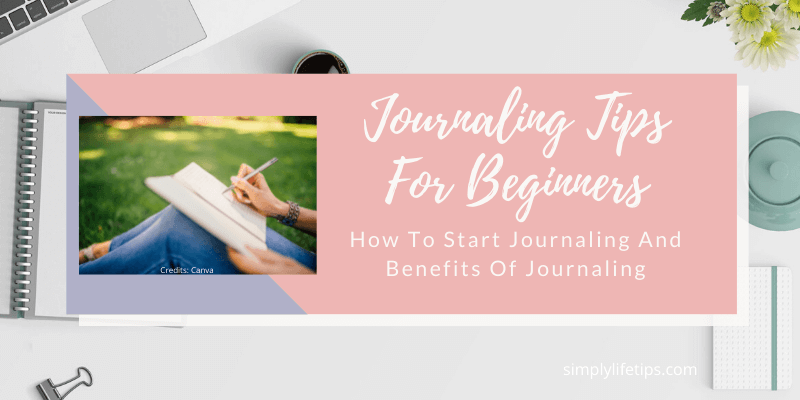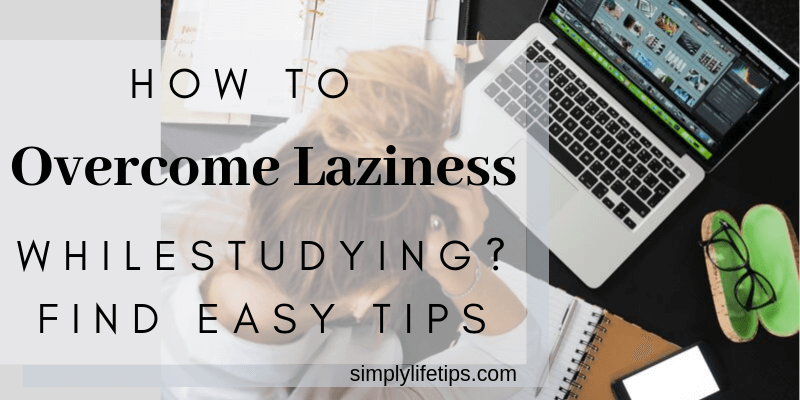Do you have the habit of journaling? Are you aware of the benefits of journaling? If not, start journaling today and realise the benefits of journaling which will surely help your personality development and also make many positive changes in your life. In this article, you can learn journaling tips for beginners, and also about the benefits of journaling.
Journaling Tips for Beginners – How To Start Journaling?
Do you think journaling is just a little thing just to write down your memories to pass the time? It may be a small thing, but it’s a strategy that has helped many powerful, brilliant and wise people become better at what they do. Journaling has changed the life of many successful people.
What is journaling?
Journaling is a journey that you’re going on that you have absolutely no idea where you’re going to end up. It’s like a discovery of everything from your thoughts, your hidden traumas, your patterns, your likes, and your dislikes. It is a way that will help you to get to know to build a trusting relationship with yourself all through the process of just writing.
- A place where you can pour your heart out, speak from your soul, work through your traumas and triggers and track your self-development and spiritual journey.
- A good way to really begin to reflect on who you are, is through your own words.
- Really helps sort out the monkey mind and allows you to centre in on who you are.
Read How To Stop Dwelling On Negative Thoughts?
Who should journal?
Journaling is for everyone, whether you are a man or a woman, whether you feel like you’ve been through crazy traumas in your life or whether you feel like you’ve had a pretty great life. It is a point of growth and we are always able to grow. Growth is something that never ever stops and so if there is a practice like journaling that has the possibility of making you better each day, each month, each year. Journaling is for absolutely everybody no matter what place you are in life.
Journaling Tips for Beginners
Start journaling

When you start journaling the first time, many thoughts will come into your mind like, who am I writing to, what should I write etc. You may feel pathetic because it might take a really long time to get into the concept of writing from your heart. You may feel scared to see that are trapped in your mind, you feel fear, sadness, anger and discomfort. But once you start through the fear and the discomfort things will change and you will learn to overcome obstacles. Slowly your fear will go away, and you feel comfortable, and peaceful and start enjoying journaling. In the beginning, it’s tough but just stick through it because it is definitely worth the experience.
Mind is powerful – Journaling tips for beginners
We are very good at trapping things in our minds. Our mind is so powerful that it can literally forget things completely if you have been through enough pain to push you there. That concept of when it starts coming back to you, that feeling of when you’re overwhelmed with, you’ve suddenly made your way through the surface layer, you’ve suddenly made your way through that box and you’ve opened it and then you’re opening this other box and another box. And then there’s something that you’ve been keeping in your mind and in your heart for so long that you really didn’t want to visit. When you visit those things, it connects back to all the things which now are being affected because of it.
What you can write in journaling?
You will definitely realise that initial feeling of fear approaching something that you haven’t wanted to for a long time or approaching something that you didn’t even know existed in your mind that’s pretty scary. You can write anything from your to-do list, your frustrations to ambitions, your goals or anything else that come to your mind or speak with others. What’s really important about journaling is to remember that it’s a place where you can let loose and give out freely with no inhibitions. It’s also a place for solutions. It’s not just a place where you are wallowing in your distress or you are sitting in your sadness. It’s a place where you can do all of those things but with the need and with the desire to come to a solution or to come to a better place.

You can just write about everything happening in your daily life. Just write every single thing that comes to your mind. Sometimes certain topics come to your mind if felt envious that day if felt angry that day. Then trackback on your full day, how did that trigger come about, how did you end up saying those things, and how did you get yourself to a position where you were so agitated. Tracking back almost your footsteps. It makes sense for you to communicate with yourselves and really understand yourselves and also helps to understand other people better.
You can keep a journal with you anywhere anytime grab it write an idea down, write down how you’re feeling, evening, mornings, during the day, you can journal anytime. It depends on how you’re feeling, depends on what mood you’re in, and depends on what you want to say to yourself.
Maybe on one day, it’ll be a simple word but the period of time, a minimum of 10 minutes when you’re starting because you have to allow your barriers and your shields to come down before you’re writing and allow yourself to take down all those personas that you are holding on to, that you’re used to sharing with the world and then stripping it all down. So at least 10 minutes is necessary to get to the core of your heart in your writing and really see that you are opening up in the way you want to.
Common benefits of journaling
So there are so many common benefits that are spoken about. It helps to relieve stress, it helps to relieve tension in the body. You can release your emotions and it helps with your general well-being for sure. We have a natural tendency to screen for the acceptability of others. Constantly screening is something we all must do because we have the fear of being accepted, we have the fear of speaking in a way that pleases other people whether it’s subtle or whether it’s gross.
Read Public Speaking – How To Overcome The Fear?
The benefits of journaling are a moment of no filter, a moment of no expectation, no screening, just raw and sometimes ugly and sometimes so beautiful, and sometimes unexpected and wonderful. Another benefit is in the difference in relationships. It is a wonderful way to really think about what you wanted to say to someone methodically without just blurting it out where sometimes you can end up saying things that you don’t mean. This gives a space to work through whatever you wanted to share with someone whether it is good, whether it is bad that you wanted to hurt someone. You will be able to share unfiltered and then be more mindful because taking into account there’s this concept of you should be able to say whatever you want to the people. You should be able to care about using words wisely. That’s what journaling allows you to do.
Read Is It Necessary To Have Healthy Relationships With Parents?

Journaling helps to identify your strengths
Journaling helps to identify and hone in on the things that you need to work on and the things that are your strengths as well as where you really show up for yourselves. So it allows you to notice those habits, those patterns, those things about yourself that you need to adapt and those things about yourself that you feel really happy about, and that you feel like you’ve really grown. Looking back in your journal years or months you’ll be looking at how ideal with that situation versus how today you are dealing with this situation which is pretty much the same. What a huge difference it’s made and then you’ll see the progress that you made and how that even came about. Journaling helps you feel like you’re in control of your own mind instead of your mind controlling you.
Read How To Break Your Negative Patterns And Habits For Happiness
Don’t share your journal pages – Journaling tips for beginners
Let your journaling pages be your own pages and don’t share them with anybody, let it be a sacred space for yourself. When you end up writing in this way you notice things about yourself but don’t judge yourself, be an observer. Observe your patterns, but don’t dislike yourself for it.
A key aspect of journaling is it’s not just the wallowing, it’s not just the sitting in yourself pity, it is the reflection if you write right after you finished. Reflection leads to change, reflection leads to analysis, and reflection leads to growth. Don’t just write the pages, shut the book and forget about it. Make sure you are making a conscious mindful effort to make those pages into a lesson to create something that you’re going to take from all of that a little nugget of wisdom, that you’re going to take with you throughout the rest of the day. Writing and journaling without reflection would be missing a huge part of growth.
Read How To Overcome Self-Doubt In 5 Seconds? | Mel Robbins
Differences between journaling and freewriting
In journaling, you can stop and have thoughts and think about things but in freewriting, you just keep pen to paper and you just keep writing even if your mind is saying I don’t know what to write. The concept is that eventually you will let your guard down and your heart will start freely flowing to you. Just don’t take your pen off the paper.
Journaling just gives you more time to think, it allows you to not act on your impulses. Freewriting is good if you’re used to holding back and you notice that you are someone who holds back while journaling. Try freewriting because it almost stops your mind from thinking too much about what you’re writing and just lets you share. That’s probably the main difference between journaling and freewriting but try both. See how you feel and see which one you connect to the most.
These are a few journaling tips for beginners. You can try and also share with your friends.
Final Thoughts
Have you found useful journaling tips for beginners? Do you think you can’t journal? If yes, here’s a tip: start writing a letter to your close friend or family who you trust. Just catch them up with what’s up, but don’t send it. You will slowly pour your heart out. Covid-19 pandemic is a way to track what is going on.
Do you like to add more journaling tips for beginners?
Kindly share this article on your network and help others to read it.
Please leave your views about this article in the comments box.
Reference- YouTube

Mathukutty P. V. is the founder of Simply Life Tips. He is a Blogger, Content Writer, Influencer, and YouTuber. He is passionate about learning new skills. He is the Director of PokketCFO.
He lives with the notion of “SIMPLE LIVING, CREATIVE THINKING”. He Believes – “Sharing is caring.” and “Learning never ends.”



